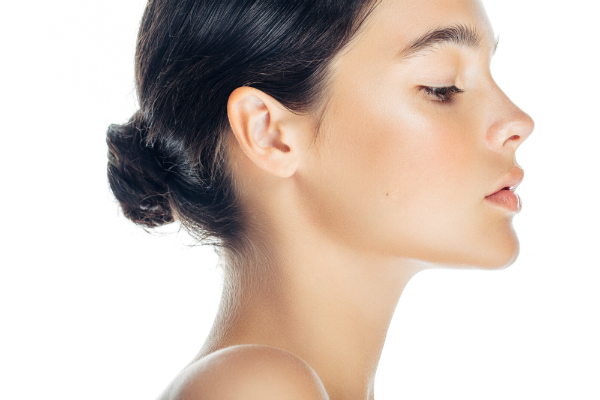Both men and women opt to undergo rhinoplasty for a number of reasons. Many people contemplate rhinoplasty for solely aesthetic reasons, although it might be necessary to fix structural problems like as a deviated septum. Patients who have rhinoplasty for medical or cosmetic reasons are often impatient to see the results, but healing takes time. The proper result can only be achieved by following a set of stages and instructions throughout recuperation.
After rhinoplasty, you need follow some recommendations to feel better. Based on our expertise with hundreds of rhinoplasty procedures, we’ve crafted the following set of guidelines for you. To make your recovery after rhinoplasty as easy as possible, follow these instructions to the letter.
Table of Contents
ToggleWhat is the solution?
There are many tasks to do after rhinoplasty that doing them correctly and regularly helps to have fewer side effects of rhinoplasty. Using ice compress in the first 48h post-surgery and hot compress after the second 48h after surgery, not having social activities for a while, be careful while brushing your teeth, are some the post-operation care of rhinoplasty. Changing tampons and bandage are the most important post-surgery tasks to save the favorite form. The result of the rhinoplasty highly depends on the aftercare.
In Iran we help our patients for four to five days at least after surgery to care about the nose, having medications regularly, and any cares they need to decrease the side effects of rhinoplasty.
Can you feel your nose after nose job?
Can you feel your nose after nose job? It is normal to have numbness and tingling sensation in the upper and lower lips and the nose for several months after rhinoplasty and there is no particular concern. Every surgery has its risks and side effects which are not inevitable. Rhinoplasty is not a non-side effect surgery, too.

What does my nose feel after rhinoplasty?
After surgery, the majority of patients report mild to moderate pain that may be managed with medication. For a brief period of time, you may have congestion in your nose and breathing difficulties. The skin at the tip of your nose may also be numb. As the sensation returns, you may experience itching or stabbing pain.
Rhinoplasty healing symptoms include swelling and inflammation of the nose, numbness in and around the nose, and minor bruising or discoloration beneath the eyes. All of these sensations are transient, and after about six months, you will no longer feel your nose.
Swelling
Every surgical procedure, no matter how little, causes the surrounding tissues to swell. The extent of swelling differs between individuals. Your face may seem deformed because of the looseness of facial tissue, which makes the swelling more noticeable in this area. To reduce swelling, medication will be prescribed.
Swelling usually reaches its highest point two or three days following surgery. Your doctor may advise you to take measures for several weeks following surgery to reduce the possibilities of bleeding and edema.
Necessary measures after surgery to reduce bleeding and swelling
- Even when sleeping, keep your head above your heart and your face upright.
- Avoid intense activity like running and aerobics.
- Brush your teeth softly to restrict upper lip mobility.
- Refrain from bending over or lifting for a period of around two weeks.
- Avoid pushing or striking your nose.
- For the first couple of days, use a cold compress to your eyes and forehead to alleviate irritation and partly decrease swelling.
- Avoid getting a facial tan for several months.
- Avoid exaggerated facial gestures like smiling and laughing.
- Avoid blowing your nose.
- To avoid irritating your bandaged nose, take a bath and not a shower.
- Avoid wearing glasses.
- Wear front-closing clothes.
Additionally, apply SPF 30 sunscreen on your nose while you are outside. Keep in mind that reducing your salt intake will help the swelling subside more quickly.

Bruises and discoloration
It is fairly uncommon to see varied degrees of bruising around the eyes and cheeks following rhinoplasty. For the most part, it lasts little more than a week, with the severity gradually diminishing over time. However, in certain cases, people may have discoloration that lasts for a few weeks. The actions that reduce swelling will also improve discoloration and bruising.
Bleeding
If bleeding begins, relax or lay down with your head raised on pillows. Do not use blood-thinning drugs like aspirin or Advil.
Will the nose be more vulnerable and fragile after rhinoplasty?
As your nose recovers during nose job, it will likely become more brittle and sensitive. Even slight nose changes may have a major impact on a person’s look and overall satisfaction. Therefore, you must avoid bumping it or engaging in intense activities like swimming or jogging.
Self-cleaning after rhinoplasty
After a rhinoplasty, you should clean your nose according to the directions provided by your doctor. You are just need to comply with our instructions. You will detect crusts, lumps, ridges, or anomalies within your nostrils after a few weeks. These are very natural and will gradually disappear on their own. Avoid trying to fix them yourself since you might permanently damage your nasal tip.
Conclusion
Nasal surgery is a frequent surgical procedure that may not only enhance nasal breathing but also provide excellent aesthetic results. Post-operative care is very essential, and should not be overlooked. Remember that the success of the operation is dependent on both the patient and the physician. Without adequate post-operative care, even the greatest surgeon in the world would not achieve the desired outcomes. Hence, precisely follow your doctor’s instructions.
Last word
Rhinoplasty in Iran which providing by Mediranco, covers all needs of patients before the surgery to the end. We know our patient’s worries and try to have a perfect solution for them.

